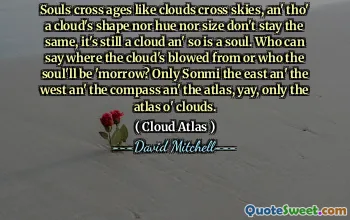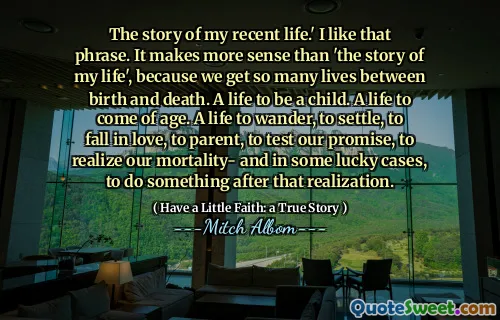We want to get there faster. Get where? Wherever we are not. But a human soul can only go as fast as a man can walk, they used to say. In that case, where are all the souls? Left behind. They wander here and there, slowly, dim lights flickering in the marshes at night, looking for us. But they're not nearly fast enough, not for us, we're way ahead of them, they'll never catch up. That's why we can go so fast: our souls don't weigh us down.
In "The Tent" by Margaret Atwood, the narrative explores the concept of human longing and the paradox of speed. The desire to reach a destination often propels individuals forward, yet it suggests that fulfillment may lie in the slow, reflective journey rather than in haste. The quote presents a dichotomy between the swift pace of life and the weight of the human soul, which historically can only move at a walking speed. This raises questions about where everyone is headed and what is left behind in the pursuit of speed.
As souls are depicted as wandering lights, it symbolizes a search for connection and meaning, lost in the rapid movement of life. The contrast between the fast, unburdened existence of the living and the slower, wandering essence of the souls illustrates the idea that while we may think we are advancing, often, we leave our true selves behind. The narrative suggests a deep sense of loss, as those lost souls will never catch up, reflecting on the consequences of prioritizing progress over introspection and connection.





